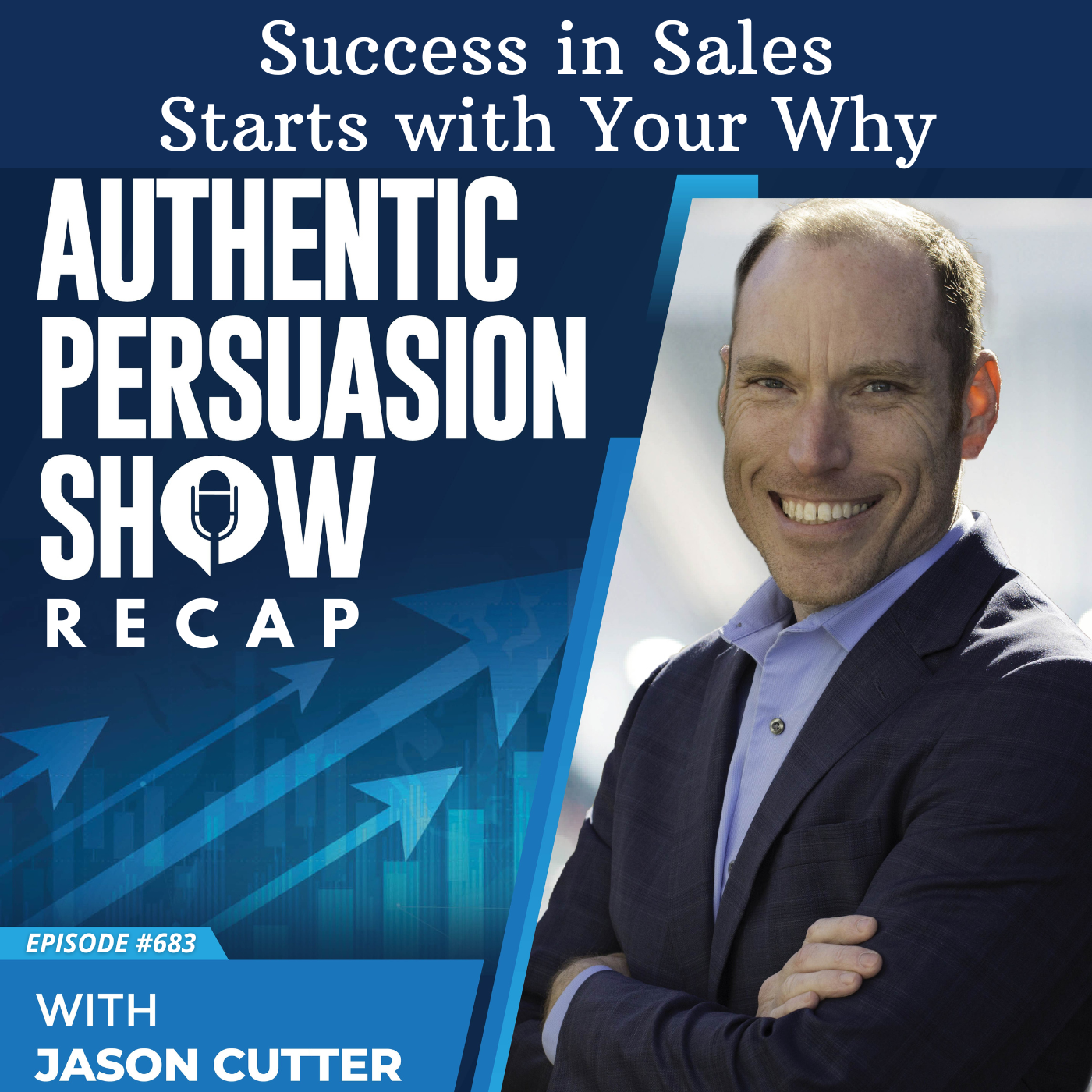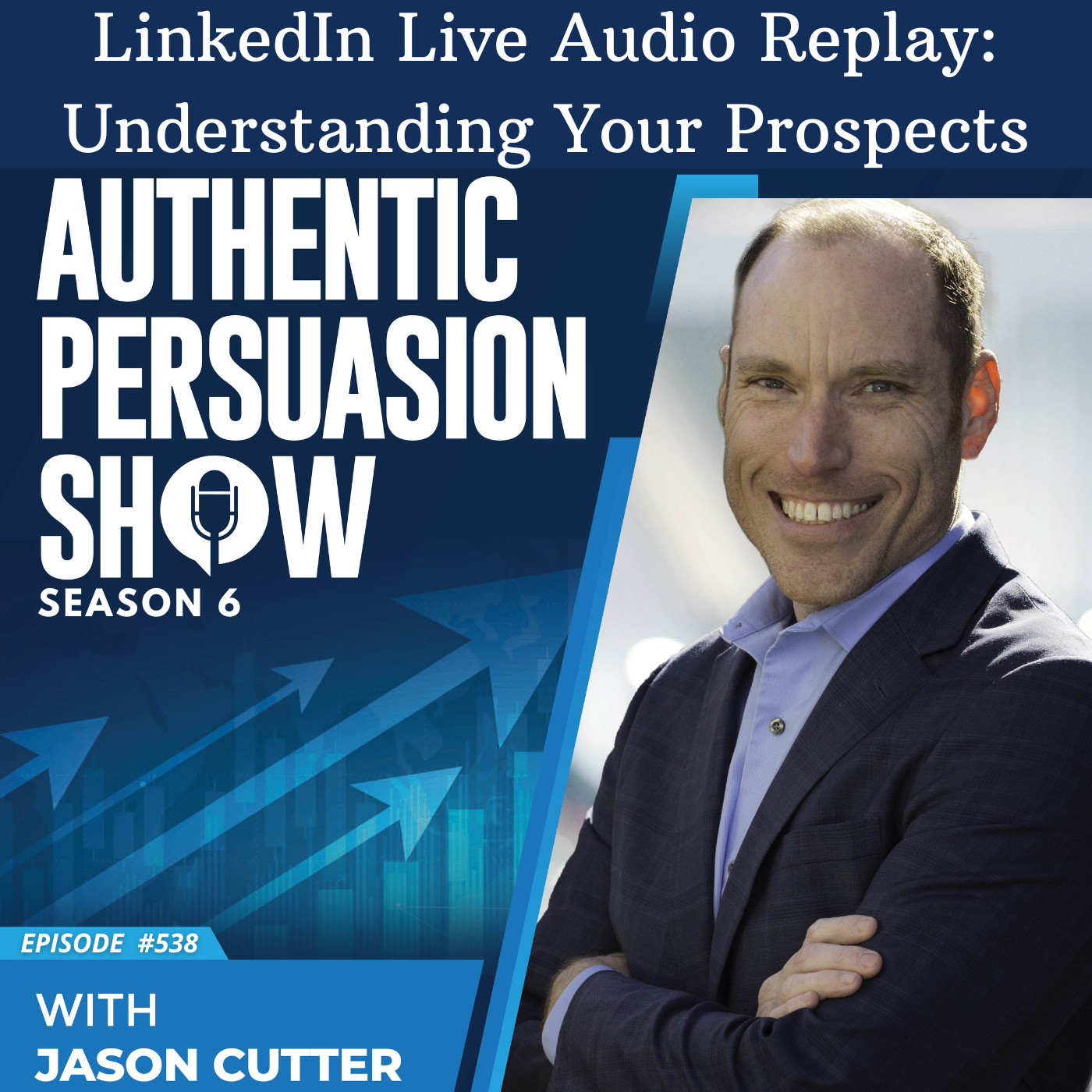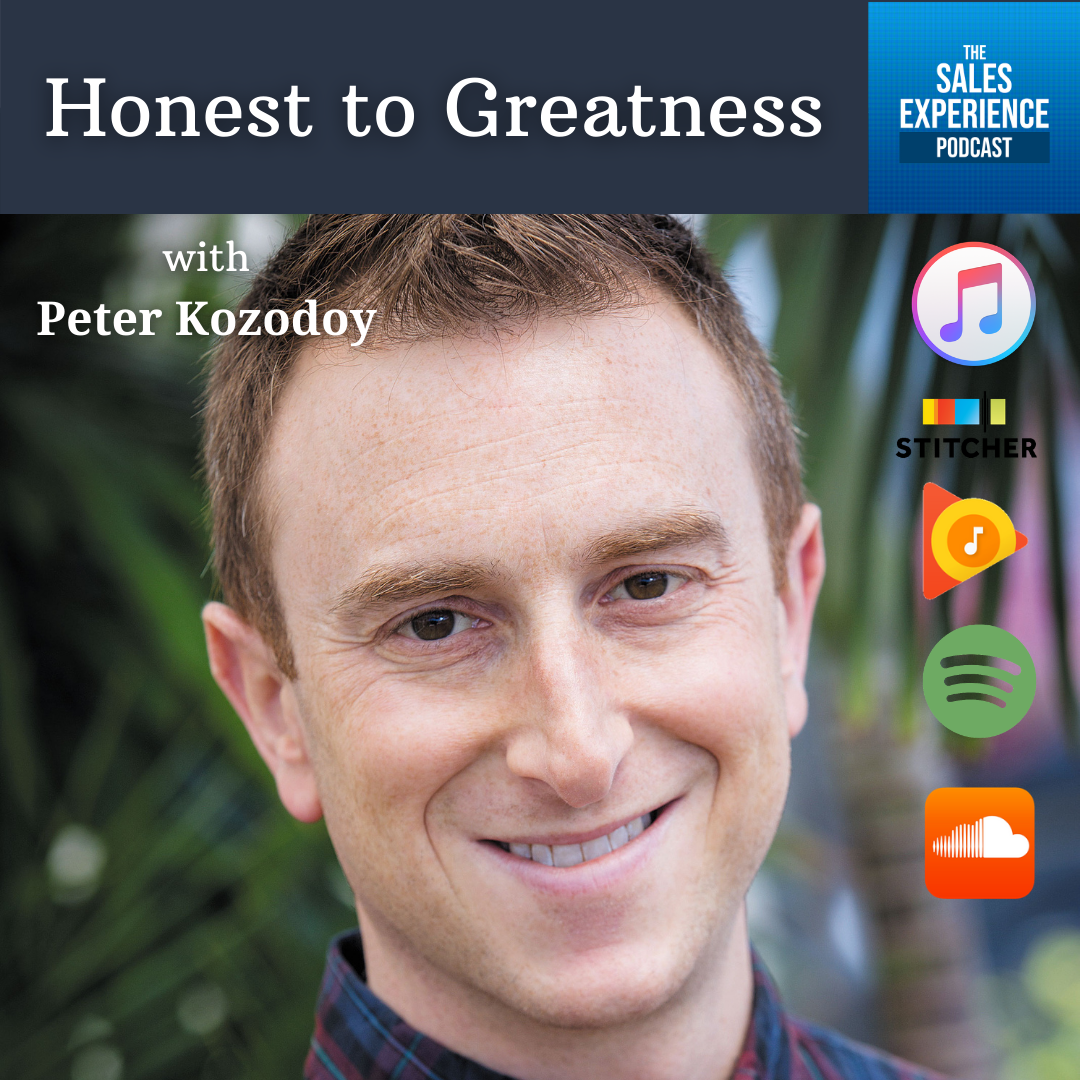Episode Transcript
Jason: Welcome back to the sales experience podcast. Welcome to part three of my conversation with the amazing Zach Knight. If you haven't been tracking it along, make sure to listen to part one and two. This is going to be a continuation of that conversation. We're just going to keep diving into the military and security.
And then eventually in part four, we're going to get to leadership and business development. And so make sure to check out the other episodes, subscribe, wherever you got the podcast, you can catch each one of these every single day. But here we go, part three of my conversation with Zach Knight.
Zack: Think about how much is out there from books to YouTube to podcasts like this one.
There's so much content you can pull. Maybe you don't like how I sell something. But you just learned how you don't want to be a salesperson, right? So there's always that nugget that you can pull out of it. It's a fantastic point you just made. Definitely worth realizing there's always something to learn.
Jason: Yeah. And my mom says it best because I've had that windy path. And mom is always, she says it best. Like one of the main points of life is to learn also what you don't like doing and what you don't want to do again. Trying jobs, trying hobbies, trying things. And then, okay, no, I don't want to do that again.
I don't want to work the front desk at a hotel anymore.
Zack: I'm good. Thank you. Or I don't want to be in law enforcement anymore. And it's time to transition. And that's a really tough transition. I correlated law enforcement, military, professional athletes, Olympic athletes. You look at your identity becomes what you're doing.
And that's the same for a teacher trying to become an entrepreneur or any industry that you can think of where your identity becomes what you're doing. And you're so sold into that to take a total paradigm shift. And I left law enforcement at 28 and joined the military. I went in. Like basic training at 28, so I was an old guy.
You're the old, bald, old man. They're like, why don't you have hair on your head? I'm like, look, years of stress. You'll learn.
Jason: Let me tell you kids how it was when I was young,
Zack: It's never too late to make that transition. A hundred percent, make that leap. And it's a difficult transition.
I'm not going to tell you. It's always pretty. I can tell you I've always had great days in business. I'm still learning everything I can about sales and marketing because. That's not my background. My background is operations, executing things, getting things done. I'm great at that piece, but you can't do that piece if you're not selling and marketing, right?
So there's always more to learn about it completely in a hundred percent.
Jason: Everything in life is sales. All right. So I want to talk about the security consulting that you do now, not the fine details. But when we talked, one of the things that blew me away that I found the most fascinating that I think is interesting topic is the fact that what you sell is actually really difficult.
And the concept and what you're trying to get someone to pay you for as a security consultant, and I don't want to ruin it, so I'm going to let you describe because I know you already know what I'm going to talk about. So tell me about what you're selling as a security consultant.
Zack: If I'm really good at my job as a security consultant, and to give a little bit of background, we do assessments, threat analysis.
If you notice SWOT analysis is for business, we do a strengths, weaknesses, opportunities, and threats for security. And essentially break out the analyzation of what could happen to a business from lawsuits to slip and falls to active shooting situations. We look at all of it and then provide solutions for how to overcome that, right?
So at the end of the day, you should be 100 percent physically and psychologically safe in your workplace when we're done. Which means if I do my job I'm selling nothing. I'm literally selling nothing happening at your location is my client, which when I say that to a client, they're like, what do you mean you're selling nothing?
My consultation and implementation, it's tens and thousands. Sometimes if the organization, if it's a high rise here in Atlanta, you're talking a couple hundred thousand dollar project to completely overhaul their security. And I literally say, I'm selling you nothing. Because if nothing happens, that means I did my job right.
And that's a really hard sales pitch. But there's so much irony attached to that I love bringing that into the conversation because it adds a little bit of levity to it as well.
Jason: And the part that I want people to hear, Is that a lot of times, and I've dealt with a lot of salespeople, a lot of industries, they think what they're selling is so hard.
They think it's so hard to convince people to want to buy it. Maybe they're selling marketing automation software and they're struggling with overcoming objections so that they can sell somebody's software that will literally provide a tangible calculatable ROI, which is currently you're generating X.
Now you're going to be generating X plus. This and so here's your ROI and I hear it all the time where salespeople are like, Oh, it's difficult to sell people and get them to buy in. I'm dealing with objections. I got to sell. Now you want me to sell value and benefits instead of selling features and handing out brochures.
Come on. And like just all these challenges and struggles because they think it's so difficult. And then there's you on the other end of the spectrum. Which you're selling the hope that the sign on the wall that you see is in manufacturing places, no accidents, number of accidents in the last six months stays at zero forever and is just completely ignored.
You're selling nothingness, which to put in perspective is. Probably a bit harder than selling something. This Hey, it's Jason here. We'll be right back to the podcast, but first, are you ready to change the way you view your selling role and become a sales professional? Do you have a team that is hungry for new ways to improve and grow?
If so, I have various coaching and consulting programs available that might be great tools to help you achieve your goals. To learn more about the ways we can work together and to book your free sales power call, go to Jason cutter. com. Now let's get back to the episode.
Zack: I would say it is it's been a heck of a learning curve and what people have to understand about security is inherently an expense that does not provide revenue.
No matter what I do, it will cost you money. There's no way to make money off the security system. So when I develop these sales pitches, just for me to come in and talk to you and do a baseline assessment, it's close to 10, 000 depending on the size of your location, right? So if I'm selling my time at 10, 000, what's the ROI attached to that?
Because at the end of the day, every business owner know, wants to know what's the return on this 10, 000 investment. And what you have to do as a salesperson is be creative about what that investment and that return is going to be. For me, what I finally hit, and I came up with this idea through mentorship, coaching, masterminds, a whole different topic.
There's so much that I've had to go through to learn about where's that return on investment for my clients. What we discovered is you're going to save on insurance costs. I can cut your insurance costs up to 25%. That's a huge savings. But it's an intangible quote unquote, that it's not necessarily security, but I can talk to your insurance company and get a huge discount.
Cause you practically protected your employees. You look at retention rates are usually if you lose one employee in order to hire somebody back to that level, it costs twice their salary annually to get that person back in that. So if I can provide psychological safety, which is one of the biggest issues with a high turnover rate is.
They don't feel safe from leadership, toxic leadership. I focused on that aspect of things. They don't feel safe coming into work. Corona is a perfect example of people not feeling safe coming into work. If I can sell you a higher retention rate where you don't have to go hire new people. I have to exhibit these are the savings you're getting by hiring me.
Those are the two of the big things. The more intangible is avoiding liability and negligence. By bringing me into the situation, you're no longer liable for an active shooter situation. I'm liable. I, as the consultant, if something happens, I'm the one that comes to court. You can say you did everything you possibly could to protect your employees.
So I'm now helping you avoid a multi million dollar lawsuit. Because you went that nth degree to make sure your employees were safe and secure in their environment. But I have to answer to what I implemented, right? So if you look at those three things, those are three big pieces of cost savings where I could potentially save you from bankruptcy by hiring me for 10, 000.
And that's where the true bread and butter as a salesman has come from for me is realizing what's that great return that they're going to get. It's not necessarily, they're going to make a hundred grand off of this 10, 000. They're going to save millions off this 10, 000. And once I realized that and had that explained to me by a mentor, that switch completely flipped and my sales process is just escalated.
Like I wouldn't believe, finding that one little thing of thinking outside the box of what value I bring to the table. It just completely revolutionized my business as a sales business and selling myself totally changes the game.
Jason: That's amazing and obviously I'm partially joking at you selling nothing because obviously you're selling something right and it just sounds funny and when I took notes when we talked before I'm just like this is brilliant because again a lot of people think they have it hard selling things and you're selling nothing but even in the nothingness I think it's so important which is why I'm so glad you went into that much detail.
Is for anyone listening, sales management, owning a company, there's always some value and some benefit and some ROI to whatever you're selling, right? So even if like I pictures, I go, there's big, there's security, there's all these things that you're doing. And then I think small, it's okay somebody says what if I sell cell phones for a living?
What is the value? What's the ROI to that individual who wants the latest iPhone and they just stood in line for a while? It's because they want to feel good, or they want the latest tech, or there's some emotional thing, or it's FOMO, whatever that might be, there's some value, and how do you sell to that instead of here's all, what all the buttons do?
What is the value? And I firmly believe, I'm glad you said it, I firmly believe there is an ROI, whether you can calculate it or not, in everything that's being sold or somebody wants to buy, even if it's a new car, right? They just want a new car so that they can feel good and show their friends or have the security of not having a car that breaks down.
It's like, how do you calculate that? You can't, but it's there. So you have to be able to express that. And so I think that's really what you're talking about. And that switch that you made.
Zack: Absolutely is. And that circles directly back into emotional intelligence. Because if you have the emotional intelligence to realize what's going to correlate with that potential sale, you're talking about cell phones.
Apple sells itself through the lifestyle brand they've created through their marketing. So as an Apple salesperson, my job's pretty much done. I just have to get you to upsell to the 256 gig instead of the 65, right? And that's an easy enough thing to do is, Oh, do you take a lot of photos? Do you really like tech talking where you're going to have a lot of video on your phone?
You need to hire. There's so many value ads you can bring into the situation about everything you're selling. You just have to have that empathy, that emotional intelligence to realize what's going to bring the most value of this item I'm selling to this specific client and customize it to what they're doing.
It really becomes a zero sum game where you're just like too easy. All right, here you go. We're done.
Jason: That's it for part three. I will see you tomorrow for part four. The final part of my conversation with Zach Knight. Until then, always remember everything in life is sales and people remember the experience you gave them.
![[E238] Security, Safety & Sales, with Zack Knight (Part 3)](https://episodes.castos.com/salesexperiencepodcast/images/TSEP-Zack-Knight-Cover.png)


